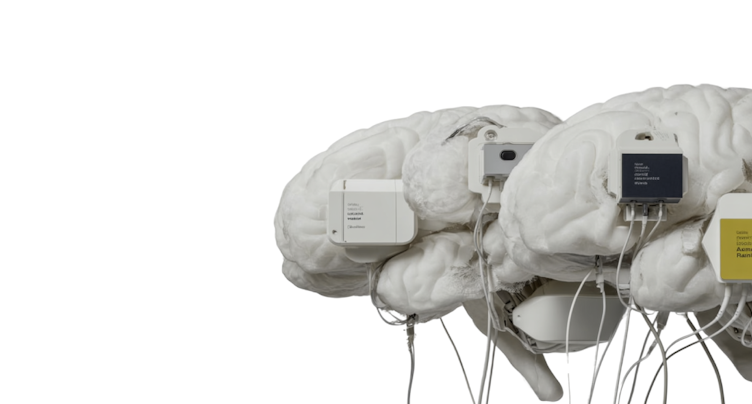share this post on


23 December, 2024
AI-driven digital health solutions particularly have a transformative impact on patients’ healthcare journey, offering innovative ways to prevent, diagnose, treat, and manage health conditions while improving patient outcomes, healthcare efficiency, and accessibility.
We’ll discuss 6 digital health solutions below after covering the basics of digital health.
What is digital health?
Digital health, at the intersection of healthcare and technology, refers to the use of digital technologies to improve and manage health and healthcare delivery. It encompasses a broad range of tools, applications, and systems that leverage digital technologies to promote well-being, enhance medical care, and optimize health services.
The benefits of digital health
Digital health provides numerous benefits for the entire healthcare system. Let’s take a look at some of them below:
- Improved Access to Care: Telemedicine and virtual consultations offer continuous healthcare access, eliminating barriers like office hours and geographic limitations.
- Enhanced Patient Engagement and Empowerment: Mobile health apps and wearables provide real-time health feedback, helping patients manage their conditions and adopt healthier habits.
- Improved Diagnosis and Treatment: AI-powered digital solutions analyze large datasets and medical images to diagnose diseases more quickly, accurately, and personally.
- Better Care Coordination: EHRs and digital health systems enhance communication and reduce errors among healthcare providers by making patient histories, test results, and treatment plans easily accessible across healthcare settings.
Cost Savings: Remote consultations reduce the need for in-person visits, especially for chronic disease management, while digital tools streamline administrative tasks, cutting costs for both patients and providers.
What are digital health solutions?
Digital health solutions are a broad range of technologies, platforms, and services designed to improve and optimize healthcare delivery, manage health conditions, and promote overall well-being. Here are a few examples:
- Mobile apps: Health and fitness apps for tracking activities, diet, sleep, and chronic conditions.
- Wearables: Devices like smartwatches, fitness trackers, and biosensors that monitor health parameters (e.g., heart rate, steps, sleep patterns, blood glucose levels).
- Telemedicine or remote patient monitoring: Remote patient monitoring goes beyond video calls or messaging platforms. It involves using advanced devices to track health metrics such as blood pressure, glucose levels, or heart function. These devices transmit real-time data to healthcare teams, enabling them to monitor patient status remotely and provide timely, informed care.
- Electronic Health Records (EHRs): Digital versions of patients' medical histories, enabling healthcare providers to store, manage, and share patient information across different settings (clinics, hospitals, specialists).
- Health Information Systems (HIS): Systems such as hospital management systems are used by healthcare providers and organizations to manage administrative, financial, and clinical data.
- AI: The use of large datasets and advanced analytics to improve healthcare decision-making such as diagnosing diseases and developing treatment plans, identifying trends, predicting disease outbreaks, and personalizing treatments.
6 digital health solutions transforming patient care
Here are 7 digital health solutions and how those can support and transform each phase of the patient’s journey from diagnosis to adhering to a care plan:
1. Self-diagnosis
- Wearable devices and passive health monitoring systems from a smartwatch checking blood pressure to devices tracking glucose (sugar) levels in real time.
- Virtual nurturing assistants can converse with patients empathically about their conditions, offer suggestions, and direct them to the right care unit while alerting providers if needed.
- Online symptom checkers can assess patient-reported symptoms and guide health decisions, complementing, not replacing, professional diagnosis and treatment.
2. Scheduling appointments & patient outreach
- AI scheduling assistants automate appointment scheduling by suggesting optimal times based on patient and provider availability, often without human input.
- Automated Reminders: Automated reminders via email, text, or push notifications help reduce no-shows and late arrivals, improving patient adherence and provider efficiency.
|
Smart reminders and a healthier routine with the Habita app The Habita app developed by Supercharge helps manage hypertension which requires consistent medication intake and regular blood pressure monitoring, yet many patients struggle with adherence. Habita, the virtual assistant aids patients in establishing their medication routines by reminding them to take their pills, measure blood pressure, and book doctor's appointments as needed, all while providing motivational boosts during critical moments. |
3. Intake to consultation
- Digital intake forms, completed electronically via patient portals or apps, save time, reduce paperwork, and enable better provider preparation by capturing medical history, current medications, allergies, and symptoms before the consultation.
- Pre-visit health data processing can be managed by using machine learning and AI to process incoming data from intake forms, wearables, or other sources and automatically flag important health information or trends before the consultation.
4. During consultation
- Video consultations enable patients to consult with healthcare providers remotely via video calls. This is particularly beneficial for follow-up visits, non-emergency conditions, mental health consultations, and patients who have mobility challenges or live in remote areas.
- Integrated diagnostic information from lab results to imaging reports can be moved into one digital system so that everything needed for a comprehensive evaluation is available in one place.
- Clinical decision support systems (CDSS) powered by AI can analyze patient data (symptoms, lab results, medical history) and recommend possible diagnoses or treatment options, reducing diagnostic errors and improving patient outcomes.
5. Hospital care
- AI-driven triage systems in emergency rooms or during hospital admission can analyze symptoms, medical history, and vital signs to prioritize patients and help providers make quicker, more accurate assessments.
- Predictive Analytics with AI models, using real-time data from patient monitors and EHRs, can predict adverse events like sepsis and cardiac arrest in hospitalized patients, triggering early alerts when a patient's condition worsens.
- AI-powered computer vision can monitor multiple patients simultaneously, tracking movement, posture, and facial expressions to assess patients’ health status remotely. This reduces manual checks and allows healthcare professionals to focus on critical tasks.
6. Patient education and adherence
- Personalized educational content, such as articles, videos, and interactive modules, tailored to a patient’s condition and treatment plan, helps them understand their diagnosis and make informed decisions, boosting confidence in managing their health.
|
Practical education and personalized help for kids with learning disabilities The DisHelps’ app creates a safe place for kids with learning disabilities and helps them learn how to tackle everyday academic situations effectively according to their personal learning struggles. From handy practical tips to informative deep-dive articles, the option to reach out to local professional help or benefit from the healing power of online communities, the app offers a wide range of functionalities that support the young users on different levels to accept themselves. |
- Interactive learning tools such as quizzes, simulations, and gamified experiences can engage patients actively, reinforce key concepts, help to better retain information, and motivate them to adhere to treatment protocols.
- Virtual health coaches offer ongoing patient support by answering questions, offering guidance, and motivating patients to stay engaged with their care plans.
|
Virtual health-coaching for women in menopause Vi, an innovative employee-benefit platform leverages AI to help working women during this transitional period. The platform’s meno coach Vera assists users with health and wellbeing-related questions, offers emotional support, and provides advice on coping strategies for dealing with the challenges of menopause, from mood swings to elevated stress. |
Digital health solutions can transform healthcare
Incorporating digital health solutions into a patient's journey empowers individuals to take a more active role in their care, improving outcomes through personalized support, education, and real-time monitoring.
At the same time, these tools enhance healthcare providers' ability to deliver more efficient, informed, and proactive care, ultimately fostering a more collaborative and effective patient-provider relationship.
At Supercharge, we design digital experiences powered by cutting-edge technology and the ability to transform healthcare systems for the better. Look at our healthcare offerings!
Let's create a world-changing digital solution together!
The form is loading...


